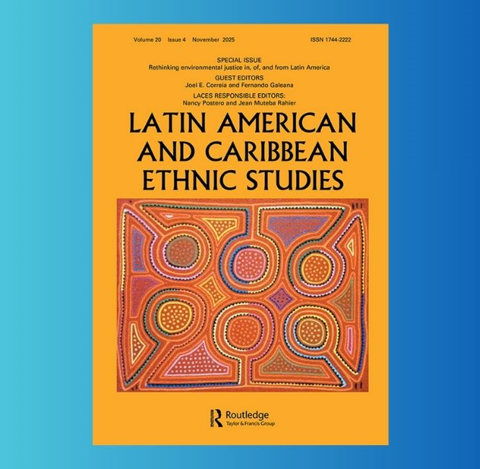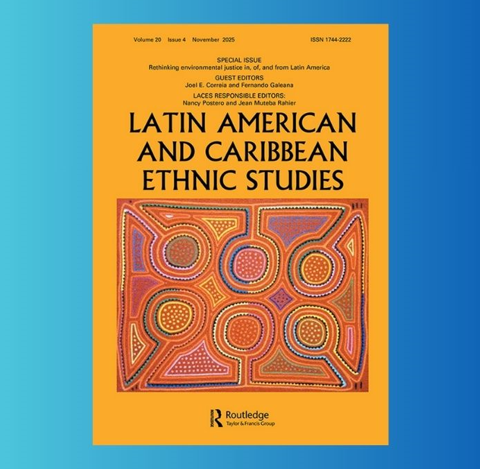Congratulations to LACC Faculty Affiliate and LACES Editor in Chief Dr. Jean Muteba Rahier. LACES is proudly supported by LACC.
https://www.tandfonline.com/toc/rlac20/current
Volume 20, Issue 4, November 2025
Latin American and Caribbean Ethnic Studies (LACES) is a cross-disciplinary venue for quality research on ethnicity, race relations, and indigenous peoples. It is open to case studies, comparative analysis and theoretical contributions that reflect innovative and critical perspectives, focused on any country or countries in Latin America and the Caribbean, written by authors from anywhere in the world. In a context in which ethnic issues are becoming increasingly important throughout the region, we are seeing the rapid expansion of a considerable corpus of work on their social, political, and cultural implications. The aim of the Journal is to play a constructive role in the consolidation of this new field of studies and in the configuration of its contours as an intellectual enterprise.
Editors, Jean Muteba Rahier and Nancy Postero with financial support from LACC, the issue is dedicated to rethinking environmental justice in, of, and from Latin America.
Check out these articles and more in the new issue:
-Anti-colonial environmental justice in, of, and from Abya Yala: an introduction by Joel E. Correia & Fernando Galeana
-After the flood: expansion and retreat of Indigenous autonomy and environmental justice by Andrea Baudoin Farah
-Making Indigeneity without Indigenous Peoples through REDD+ initiatives by Nathalia Hernández Vidal, Diego Enrique Silva Garzón, Laura Gutiérrez Escobar & Nelsa de la Hoz
-Settler extractive governmentality, Kichwa storytelling, and Indigenous environmental justice in the Ecuadorian Amazon by María Belén Noroña & Marcia Aguinda
-Mapping memories: tracing Mapuche mobilities beyond borders by Viviana Huiliñir-Curio
-Justicia epistémica y geografía indígena en un libro wounaan de cuento ilustrado by Doris Cheucarama Membache, Chenier Carpio Opua, Frankie Grin, Rito Ismare Peña, Dorindo Membora Peña, Chindío Peña Ismare & Julia Velásquez Runk
-Race, place, and the politics of land: agrarian dimensions of environmental justice by Michael M. Cary

